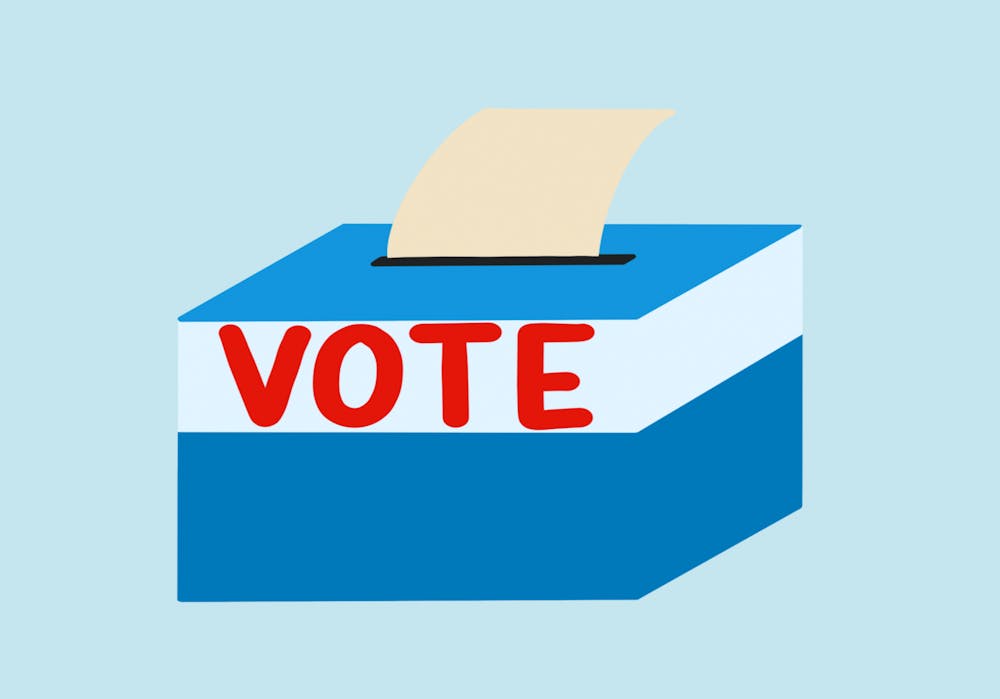Self-governance is a tenet on which we pride ourselves, but it is an empty ideal without effort from both the institutions governing us and the students they represent. The University Board of Elections has had a difficult few semesters within its organization, and voter turnout remains low. Self-governance, which requires the elections that UBE organizes, must be taken seriously — by both UBE and the student body. This year’s elections are critical. The Honor Committee is hosting a Constitutional Convention to rewrite its constitution after the largest change in its history. Student Council provides resources critical to student success. The University Judiciary Committee must continue to hold community members to high standards of citizenship. Ahead of this year’s election cycle, we call on UBE to invest in member retention, voter education and social media outreach to better improve voting participation.
UBE has faced organizational challenges to its mission from both internal and external forces. This year, the group’s chair stepped down due to an increased academic workload. This follows a concerning pattern — last year’s chair also resigned from the position early in the academic year. With leadership constantly taking charge and abdicating authority, it is impossible to pull together and organize. The lack of stable leadership within UBE threatens its effectiveness, but is also downright confusing to an already perplexed student body.
This being said, the student body has little to no insight when it comes to what UBE is or does. To increase drastically low turnout, UBE must become a more active part of our community. It should invest in educating students not only on election details, but also on candidate platforms. Through voting, students make a difference — as we can see by the recent revision of the Honor Committee’s single-sanction system. This cannot happen without proper education, however. This might be achieved through a myriad of strategies — classroom visits, social events and social media promotion are just a start. No one engages in what they do not understand, and if students adequately knew the processes of the elections, we are optimistic they would likely be more willing to vote.
The lack of engagement is very much evident — the highest voter turnout among students last year was recorded during the aforementioned Honor referendum. Even still, this turnout was only 6,010 students, or 23.8 percent of the student body — not even a quarter of the student population. We suspect this high involvement was most likely a result of frequent outside explanations and endorsements for or against the proposed referendum, rather than any effort from UBE itself. To increase turnout, UBE should invest in what has the potential to be its most powerful asset — social media. While UBE has historically tried to increase voter turnout with election giveaways, they should opt for more educational methods so that students vote responsibly. Despite having an outreach and marketing section, UBE fails to make adequate efforts to reach the student body. Given the group’s low following, an even more engaging solution would be to partner with other organizations to reach out to more of the student body. Taking this publicity route would send a message that more accurately reflects UBE’s mission and students’ best interests — students should vote because elections determine the direction of self-governance on Grounds, not just because they’re offered free bagels.
We recognize that UBE cannot single-handedly improve voter turnout. A significant part of the effort must come from students themselves. Following the passage of last year’s Honor referendum, students should feel empowered that their voice can actually substantiate change. If UBE indeed makes more of an effort to increase voter turnout, students must be receptive. First-year students should be targeted when it comes to voter turnout efforts — they will be more likely to engage in the novelty of self-governance on Grounds. All students, however, have a responsibility to engage in University student politics. So, students — read up on UBE, research the candidates and their concerns and recognize your ability to change policies. The University is not too big and you are not too small to make a difference.
The Cavalier Daily Editorial Board is composed of the Executive Editor, the Editor-in-Chief, the two Opinion Editors, the two Senior Associates and an Opinion Columnist. The board can be reached at eb@cavalierdaily.com.







